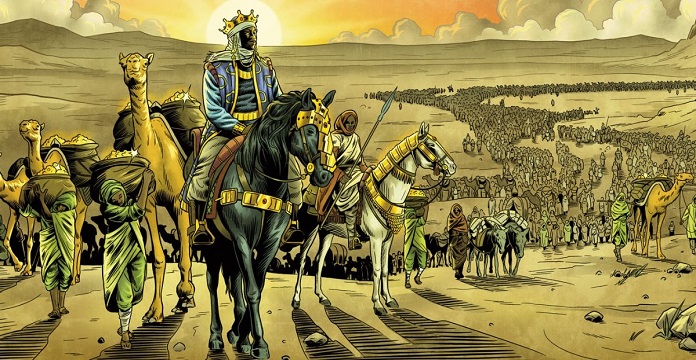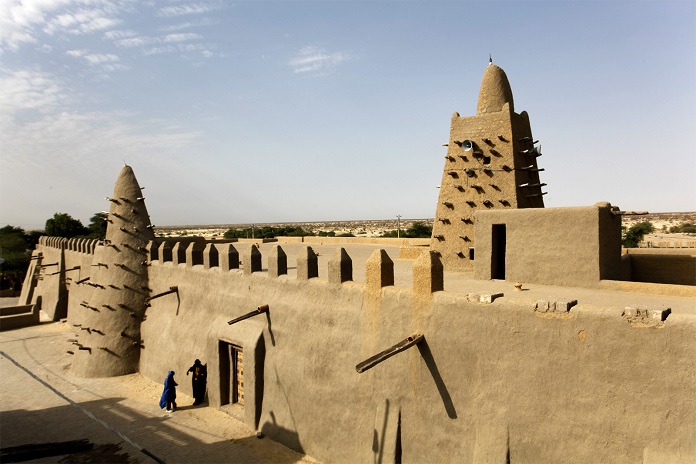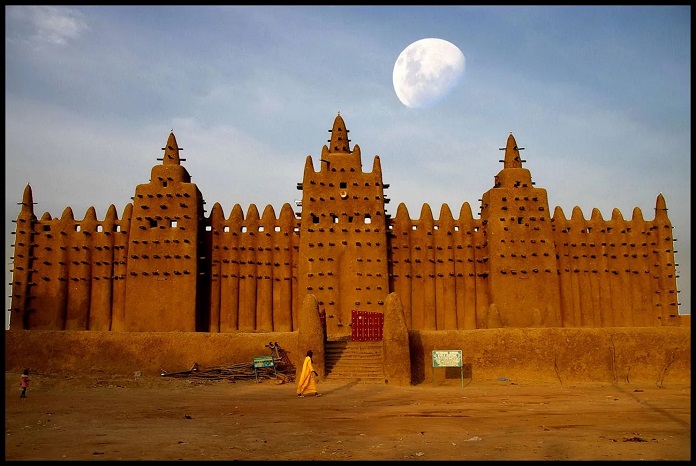When we think of some of the richest human beings alive, our minds immediately think of the likes of Bill Gates, Warren Buffet, and Jeff Bezos. While this is all well and good, the truth remains that these illustrious individuals are not the richest persons to have walked the face of the earth. When figures are adjusted for inflation, and other factors are taken into consideration, that title firmly remains in the grasp of the 14th-century West-African ruler, Mansa Musa.
Emperor of the great Malian empire, which extends to parts of modern-day Ghana, Mali, Senegal, Niger, Burkina Faso, Gambia, Guinea-Bissau, Guinea, and Ivory Coast, Musa presided over a territory that produced about half of the world’s gold supply. He, therefore, had unrestricted access to the resource and used the same to develop his kingdom. He was also not averse to lavish spending in order to prove just how wealthy he was.
Therefore, even though Musa is long dead, history has never forgotten the man who gave away gold as if he was handing out candy on Halloween night.
How the Vast Salt and Gold Deposits of the Malian Empire Contributed to Mansa Musa’s Enormous Net Worth
Mansa Musa owed his legendary fortune to his 25-year reign as the ruler of the Malian empire, a reign that began in the year c. 1312. Upon assuming office, Musa did not just sit back and bask in the splendor and wealth accumulated by his predecessors in office. He rather got to work and invested his administrative and military efforts in expanding his kingdom.
By the time all was said and done, Musa had managed to conquer about 24 cities along with their surrounding districts. Legend has it that it took a year to travel from one end of his empire to the next while more reliable sources like 14th-century traveller Ibn Battutah stated that it took about four months to travel from the northern borders of Musa’s empire to the southern borders.
Whichever it was, Mansa Musa’s expansionist efforts did not just lead to increased landmass for his empire. It also led to increased resources as the territories he conquered had huge salt and gold deposits. Of particular importance was gold, which was the mainstay of the medieval world’s economy. Musa’s control of what was half of the world’s supply of gold meant that he acquired enormous wealth. His income from the sale of salt then complimented this and sent his fortune into another stratosphere.
The Pilgrimage that Announced Mansa Musa to the World

Despite his humongous net worth, Mansa Musa was more or less a local champion whose fame didn’t extend beyond the boundaries of West Africa. He, therefore, sought a way to remedy this anomaly and the perfect solution came in the way of a pilgrimage to Mecca which he embarked upon in 1324. A devout Muslim at heart, Musa did not just embark on that pilgrimage for the purpose of satisfying his religious obligations but also to announce himself in a big way to the world and he succeeded at this.
His caravan consisted of about 60,000 men, including members of his royal court, officials, soldiers, griots, merchants, and entertainers. There was also a personal retinue of 12,000 slaves. All, both freemen and slaves alike, were garbed in expensive brocade and Persian silk, a true testament to Musa’s wealth. Beyond the humans, the caravan also consisted of about 100 camels carrying 100lbs of gold each. There was also a long train of goats and sheep which provided food for the entourage.
Musa’s caravan passed through several cities and made sure to leave a lasting impression wherever they went. For instance, in Cairo, he and his men dashed away so much gold that the value of the item devalued. Prices of goods subsequently rose and this led to an estimated loss of $1.5 billion to the Cairo economy. Despite this, historian Al-Umari, who journeyed to the city 12 years after Musa’s arrival, stated that the locals were still singing his praises as they had never seen such generosity in their lives.
Musa was also said to have built a mosque each Friday during the course of his lavish pilgrimage. All these feats announced his name to the far ends of the earth and so by 1375, the Catalan Atlas Map depicted an African king sitting on a golden throne atop Timbuktu holding a golden globe in his hand.
Mansa Musa Built Several Mosques and Schools That Facilitated the Spread of Education and Islam in the Malian Empire

Mansa Musa wasn’t just some shallow human being who only delighted in showing off his wealth. He also sought to enrich his people’s lives and so did it through several tangible accomplishments. For instance, after conquering the important and vast Songhai Empire, he hired renowned Granada poet and architect, Abu Ishaq al-Sahili, to build mosques in the two important cities of Timbuktu and Gao.
He also encouraged education by bringing in several scholars and constructing numerous libraries and schools. One of them was the University of Sankore in Timbuktu. The university was capable of housing 25,000 students and had one of the largest libraries in the world at that time with about one million manuscripts. It also boasted of several mathematicians, astronomers, and jurists whom Musa hired to teach the students.
All these ensured that Timbuktu became one of the foremost centers for education and Islamic scholarship and so, several Muslim scholars flocked to the area. The area also thrived in the trade of gold and manufactured goods and this made several European cities, Venice, Granada, and Genoa, to add the town to their maps.
The 14th-Century West-African Ruler is Remembered for His Architectural, Urbanization, and Education Strides

Mansa Musa is long gone; he died in c. 1337 aged 57, but his impact on the Malian empire cannot be forgotten. He is heralded as the leader who brought about the urban civilization of about 400 cities in his kingdom thanks to his architectural innovations. He is also remembered for kick-starting the tradition of education in West Africa as well as his economic policies which led to Timbuktu becoming an important trading center in the medieval world.
Beyond all this, Musa’s life is a testament that many parts of African had harmonious and reliable administration. As one historian put it, if the Europeans had arrived in Musa’s time, with his significant economic and military might, the story and outcome of colonization efforts would have been very much different.
Mansa Musa’s Net Worth Compared to That of Other Rich Men in History
Tesla and SpaceX founder Elon Musk has a net worth of $189 billion while Amazon boss Jeff Bezos is worth $185 billion, making the two of them some of the richest individuals in modern history. Despite these achievements, both men still lag behind when it comes to the status of the richest men of all time.
According to Time Magazine, when figures are adjusted for inflation, the richest men to have walked the face of the earth are:
- Augustus Caesar (Roman emperor) – $4.6 trillion
- Andrew Carnegie (Scottish industrialist) – $372 billion
- John D. Rockefeller Sr. (American business magnate)- $341 billion
- Nikolai Alexandrovich Romanov (Tsar of Russia) – $300 billion
- Mir Osman Ali Khan (Indian royal) – $230 billion
- William the Conqueror – $229.5 billion
- Muammar Gaddafi (long-time Libyan ruler) – $200 billion
When it comes to Mansa Musa’s net worth, wealth calculating websites like Celebrity Net Worth put his fortune at $400 billion but outlets like Time Magazine disagree with that figure, simply saying that he was so rich that it is impossible to estimate his wealth. This fact, therefore, qualifies him as the wealthiest person that the world has ever seen.
